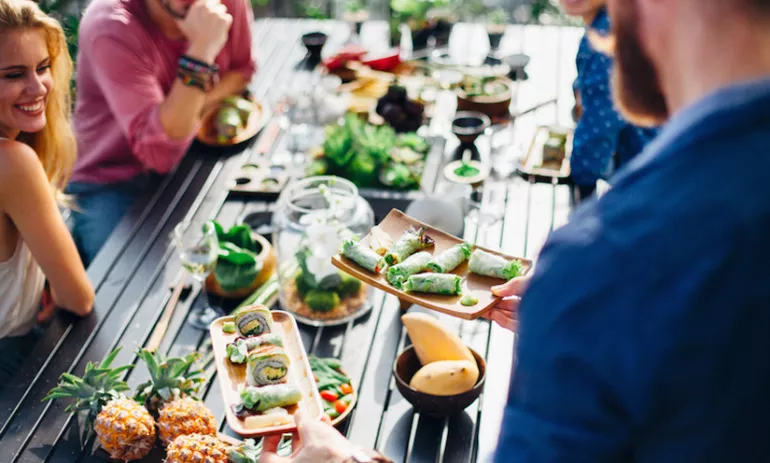
If your diet isn’t limited by religious restrictions, medical prescriptions, food allergies, or ethical concerns, your menu choices might seem unlimited. Decisions about what to eat for optimal health probably seem confusing or of no concern to you.
And yet, that might all change soon. I imagine that in the not-so-distant future, you’ll be able to use clues from your genetic profile to tailor an ideal diet to your inherited traits.
As a cardiologist with a focus on preventive medicine and healthy eating, I have a special interest in this possibility. I’m currently attending a course in personalized medicine, which utilizes the latest in genetic testing to provide the very best in individual health recommendations. (I’m also teaming up with my son to open one of the largest plant-based restaurants in the country, GreenSpace Café in Ferndale, Michigan, so I certainly know a thing or two about food and nutrition.)
It’s early in the game, and there’s still more research to be done in this area of “gen-eat-ic testing.” But it is now possible to assess your genes related to your individual characteristics of processing foods like caffeine, vitamin C, saturated fats, gluten, sodium, and omega-3 fatty acids. With this information, you can then make food choices that might favor your DNA makeup.
For example, an ongoing research project in Europe studying more than 1,000 residents is measuring the outcomes of dietary recommendations based on several food-related genes.
With that in mind, here’s a peek into what I imagine the dining experience of the future might look like:
Server: Welcome to GeneSpace Café. It’s so good to have you as our guests. Would anyone like to start with a cocktail?
Jim: Yes, I’d like a Manhattan.
Server: Thanks, but your profile shows you are apolipoprotein E 4/4. As you know, gen-eat-ic testing indicates that you should limit alcohol intake. May I offer you a sparkling water or perhaps a raw juice?
Jim: I guess you’re right. My genetic counselor at the gym did tell me the same thing. I’ll have a cucumber juice with lemon.
Server: Ma’am, can I get you something?
Sue: I’d like some of your fresh-baked sourdough bread.
Server: I’d love to do that, but your gene profile indicates that you were positive for the HLA DQ locus and your haptoglobin SNP is 2/2. The likelihood that you will react poorly to gluten-containing products is high, so I’d recommend you try our organic cornbread instead. Would that be okay?
Sue: Yes, that’s fine. Do you have my nutrigenetics menu report?
Server: Of course, and we’ve created a meal based on your genetic testing to provide the optimal combination of protein, fat, and carbohydrates. The chef is working on that now.
Jim: Excuse me, but can I have some olive oil to dip the bread in?
Server: Your ApoE 4/4 genotype not only suggests that you should restrict alcohol but also that you should follow a fat-restricted diet. I’ll bring out some apple butter in a minute, as I don’t want your health to be at risk.
Jim: That would be fine and I appreciate your personal attention. I’ll have a cup of coffee while we wait for the chef to make our dinners for our genetic requirements.
Server: How about an herbal tea? The results of your testing I have show that you’re a slow metabolizer of caffeine. This raises your risk of high blood pressure and heart disease if you drink too much caffeine. I have a great jasmine kombucha we have on special and I’d suggest that.
Jim: That sounds great. Thank you for your advice. I’m looking forward to a great meal as usual, and I’ll tell the manager that you get a DN-A+ for service.
Far-fetched? I don’t think so. All the testing and personalized information I mentioned above is already available and used in my prevention clinic.
In the 1973 comedy Sleeper, Woody Allen predicted that much of what we know about nutrition was wrong. Maybe your own DNA will require frequent chocolate and bourbon. One can only hope.
Photo Credit: Stocksy
Originally posted on MindBodyGreen.com

